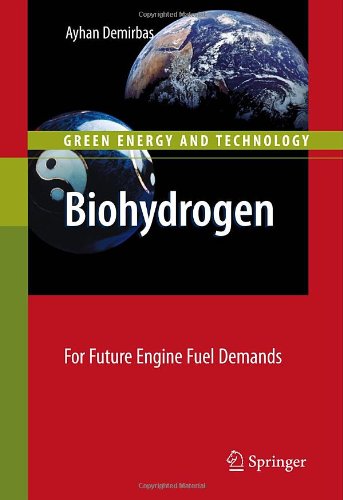

Most ebook files are in PDF format, so you can easily read them using various software such as Foxit Reader or directly on the Google Chrome browser.
Some ebook files are released by publishers in other formats such as .awz, .mobi, .epub, .fb2, etc. You may need to install specific software to read these formats on mobile/PC, such as Calibre.
Please read the tutorial at this link: https://ebookbell.com/faq
We offer FREE conversion to the popular formats you request; however, this may take some time. Therefore, right after payment, please email us, and we will try to provide the service as quickly as possible.
For some exceptional file formats or broken links (if any), please refrain from opening any disputes. Instead, email us first, and we will try to assist within a maximum of 6 hours.
EbookBell Team

0.0
0 reviewsClimate change, environmental impact and declining natural resources are driving scientific research and novel technical solutions. Green Energy and Technology serves as a publishing platform for scientific and technological approaches to "green" - i.e., environmentally friendly and sustainable - technologies. While the main focus lies on energy and power supply, the series also covers green solutions in industrial engineering and engineering design. Green Energy and Technology is a monograph series addressing researchers, advanced students and technical consultants, as well as decision makers in industry and politics. The level presentation ranges from instructional to highly technical.
The modern world is facing three critical problems: high fuel prices, climate change, and air pollution. Biohydrogen: For Future Engine Fuel Demands covers the production, purification, storage, pipeline transport, usage, and safety of biohydrogen. Hydrogen promises to be the most significant fuel source of the future, due to its global availability and the fact that water is its only by-product. Biofuels such as bioethanol, biodiesel, bio-oil, and biohydrogen are produced using technologies for thermochemically and biologically converting biomass. Hydrogen fuel production technologies can make use of either non-renewable sources, or renewable sources such as wind, solar, and biorenewable resources.
Biohydrogen: For Future Engine Fuel Demands reviews all of the modern biomass-based transportation fuels, including bioethanol, biodiesel, biogas, biohydrogen, and fuel cells. The book also discusses issues of biohydrogen economy, policy and environmental impact. Biohydrogen looks set to be the fuel of choice in the future, replacing both fossil fuels and biorenewable liquid fuels.